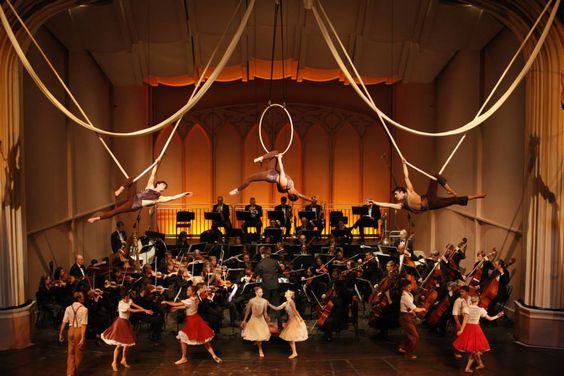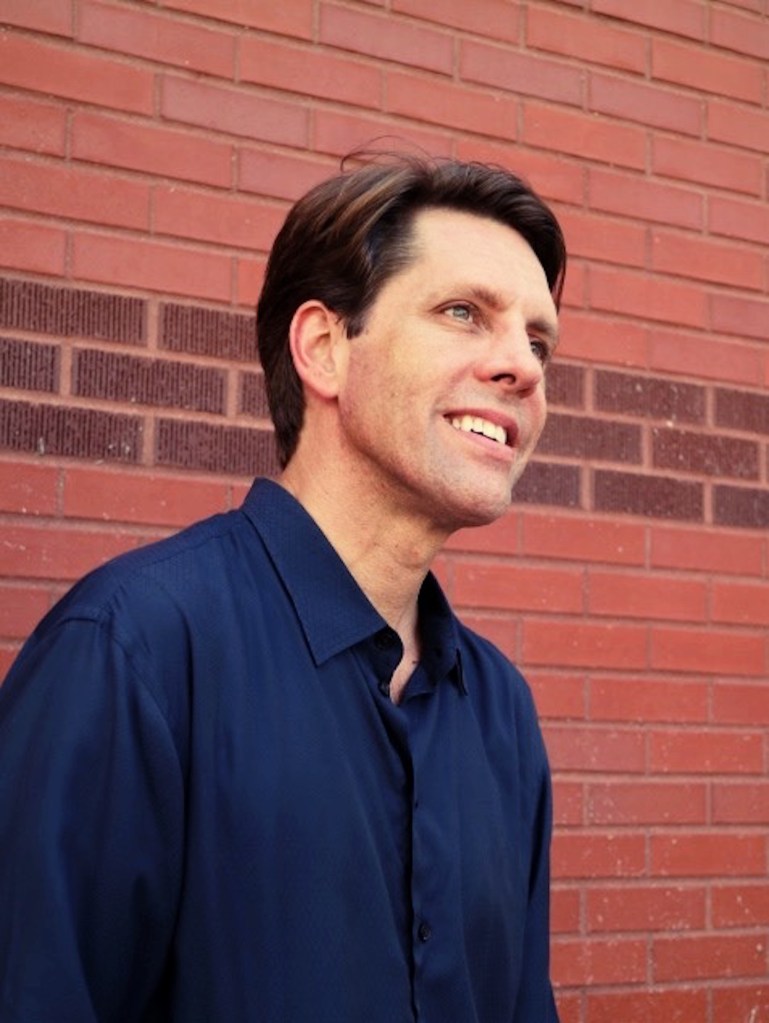Concert April 30 includes music celebrating rebirth and reconnection
By Peter Alexander April 27 at 5 p.m.
Two years ago, conductor Michael Butterman had drafted a program to celebrate the return of spring with the Boulder Philharmonic Orchestra.
That program, originally planned for April 2020, had to be postponed, due to COVID. But now the long-planned concert celebrating renewal and rebirth has itself been resurrected for performance at 7:30 p.m. Saturday (April 30) in Macky Auditorium (tickets here).
“This was a program that was originally intended to reflect the notion of rebirth that happens in springtime,” Butterman says. “It still reflects that, but it has an additional layer of meaning for us—our own emergence from our pandemic isolation.”
The starting point for the program was The Butterfly Lovers Violin Concerto by Chinese composers He Zhanhao and Chen Gang, which the Philharmonic will perform with violin soloist Claude Sim and Boulder’s Frequent Flyers Aerial Dance Company. Before that performance the concert will open with Undistant by Mason Bates, which addresses our return to human interaction after the recent period of widespread self isolation.
Filling out the program will be first Rimsky-Korsakov’s Russian Easter Overture, which has obvious seasonal significance. The final piece will be Stravinsky’s Firebird Suite, which Butterman selected because it ends with the rebirth of knights and 13 princesses who have been under a magic spell—another connection to the idea of renewal.
The Butterfly Lovers Violin Concerto was written by two Chinese students of Western music at the Shanghai Conservatory and premiered in 1959. Written for a Western orchestra, it is based on a Chinese legend of lovers who are separated by death, but reunited as butterflies. “It works very well for Western audiences,” Butterman says. “It’s extremely relatable on first hearing.”
Butterman and the Phil have done a number of performances with Frequent Flyers. He thought that The Butterfly Lovers would be a good piece for further collaboration and suggested it to Nancy Smith, Frequent Flyers’ artistic director. “It strikes me that it has a narrative arc, and certainly has potential as a work for visual interpretation,” he says.
“(Smith) agreed and they really embraced the thing. They constructed this large wing-like structure that will be hung above the stage. It acts as one fixed structure for most of the piece, but it also has hinges and it can bend like butterfly wings. It will be quite something to see!”
The soloist, Claude Sim, is associate concertmaster of the Colorado Symphony. The Phil’s concertmaster, Charles Wetherbee, was first scheduled to perform the concerto, but when he became unavailable Sim stepped in to serve as soloist and as concertmaster for the concert.
The one piece that was not in the original program Butterman conceived two years ago is Bates’s Undistant. That is the piece on the program that best connects with the idea of people re-emerging from isolation as the pandemic abates—at least a little. “Undistant is a piece that (Bates) wrote in 2020, and it is a work that mirrors in some ways our separation,” Butterman says.
“There are two groups of musicians that are placed away from the rest of the orchestra. (Bates) has written an electronica part that incorporates static, sounds of Zoom and other communication platforms that we came to use a great deal during the pandemic. Over about seven minutes he brings these different elements back together, and there are little wisps of Beethoven’s ‘Ode to Joy,’ just enough that it’s recognizable. That begins to coalesce until we have an affirming and positive ending.”
Apart from the theme of rebirth and renewal, there is one thing that joins all four pieces musically, and that is their uplifting endings. It’s there in all four pieces. In Bates’s Undistant, it is the transformation from separation and static to hints of the “Ode to Joy.” In the Butterfly Lovers, it’s the overcoming of first separation and then death through the transformation of the lovers into butterflies, gently portrayed in music.
In the second half, the Russian Easter Overture opens with the solemn tones of two Russian Orthodox hymns, “Let God Arise!” and “An Angel Cried.” Rimsky-Korsakov wrote in an autobiography that “the gloomy colors of the Andante lugubre seemed to depict the holy sepulcher . . . [and] the solemn trumpet voice of the Archangel is then displaced by a tonal reproduction of the joyous, dance-like tolling of the bells.”
The progress of Stravinsky’s Firebird is no less joyous, with “The Infernal Dance of Katschei” being followed by the “Berceuse”—a tender lullaby that lulls Katschei’s demonic minions to sleep—and the “Finale” that portrays in music the return of Katschei’s prisoners to life.
You might say these are four variations on the theme of life returning after a long winter—or a pandemic.
# # # # #
“The Firebird and Frequent Flyers”
Boulder Philharmonic Orchestra, Michael Butterman, conductor
With Claude Sim, violin, and Frequent Flyers Aerial Dance
- Mason Bates: Undistant
- He Zhanhao and Chen Gang: The Butterfly Lovers Violin Concerto
- Rimsky-Korsakov: Russian Easter Overture
- Stravinsky: Firebird Suite (1919)
7:30 p.m. Saturday, April 30
Macky Auditorium




